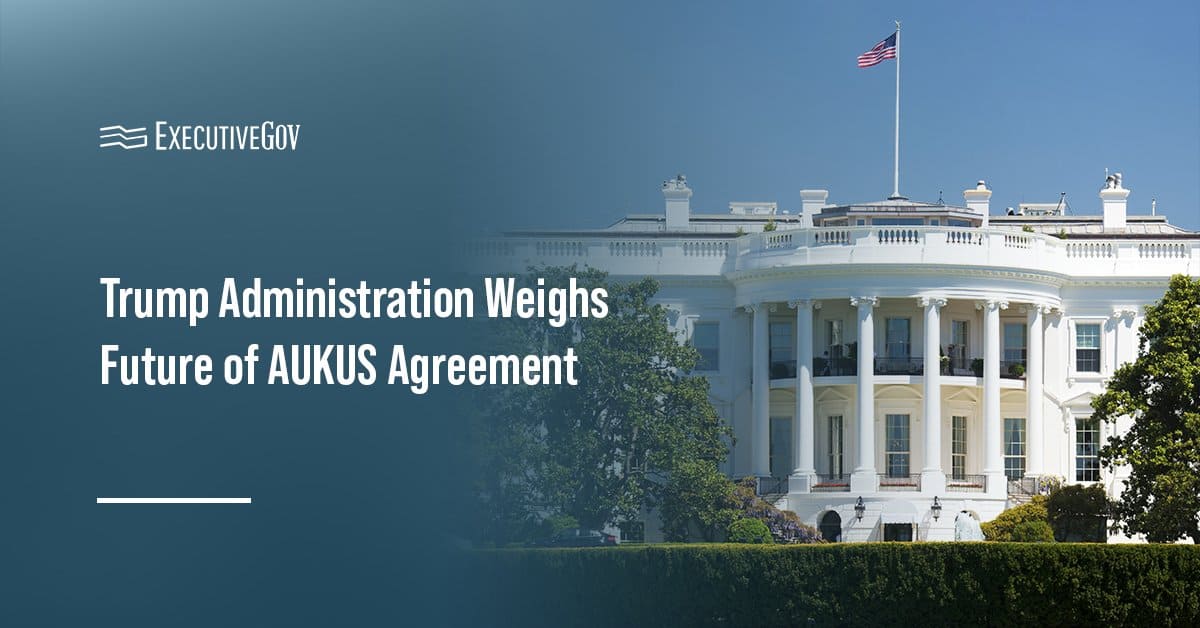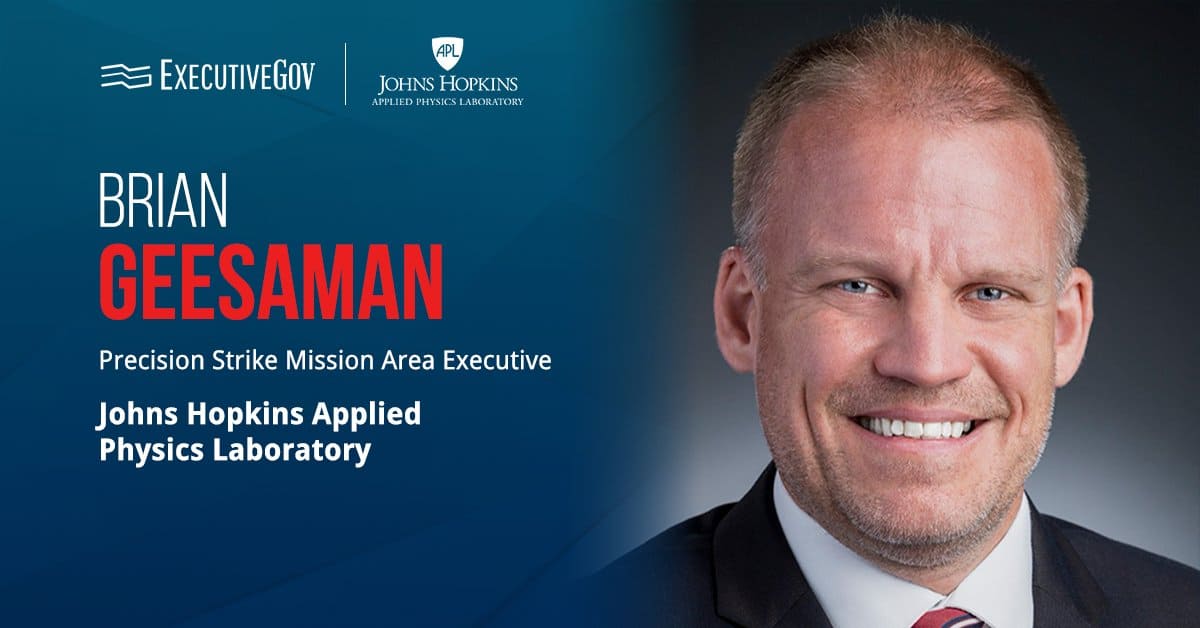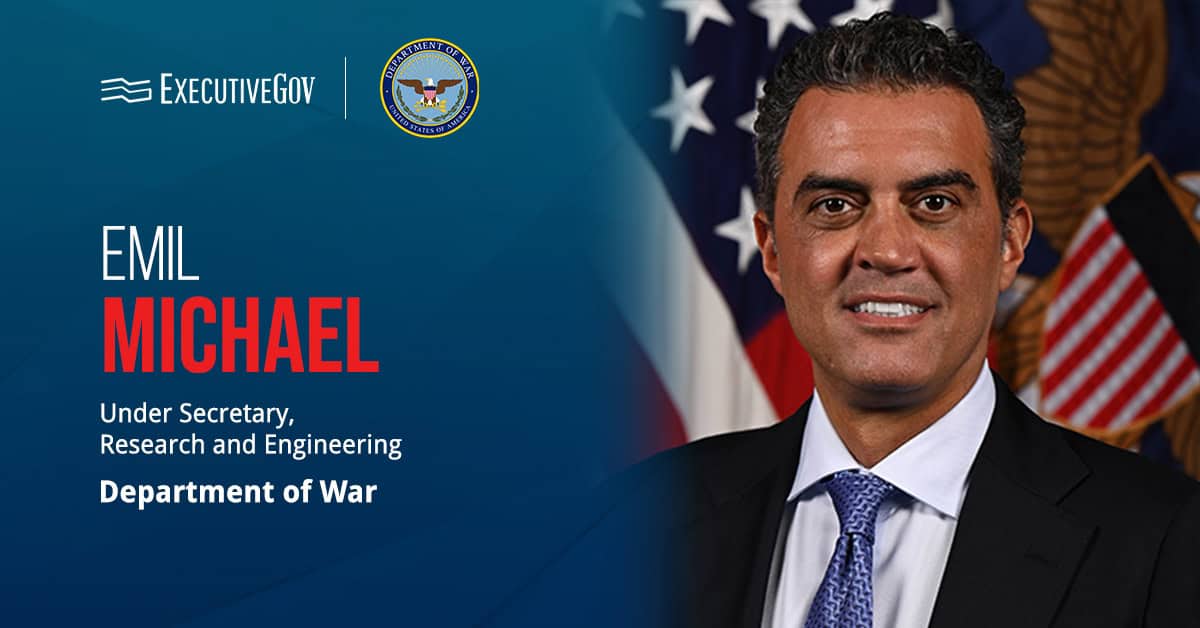The United States’ review of the AUKUS security partnership is expected to conclude this fall, Axios reported Wednesday. Led by Pentagon policy chief Elbridge Colby, the review is examining how the trilateral agreement, which began under the Biden administration, aligns with the priorities of the Trump administration.
Colby previously voiced skepticism over how U.S. resources are allocated under AUKUS, though he also said Washington should “do everything we can to make this work.”

Learn about the latest AUKUS trilateral agreement developments at the Potomac Officers Club’s 2025 Navy Summit, where maritime leaders and Navy experts will address the most critical challenges and opportunities facing the naval forces of the United States and its allies. Register here.
AUKUS Pillar I and II Challenges
At the center of the review is AUKUS’s Pillar I, under which the United States should deliver Virginia-class submarines to Australia. The Government Accountability Office and U.S. Navy leaders have warned that the U.S. submarine production remains far below the level needed to support the plan. Chief of Naval Operations Adm. Daryl Caudle recently told Congress that the current shipbuilding pace is insufficient and would require “a 100 percent improvement” to meet AUKUS Pillar I goals.
How Australia would use the submarines once acquired could impact the Trump administration’s decision about the trilateral agreement. Some analysts are unsure whether Australia would employ the submarines in operations aimed at deterring or countering China.
“They’ve been very coy about how they would actually employ the submarines, other than to say, ‘Well, it’s a deterrent, it could be employed to defend Australia,'” Bryan Clark, a senior fellow at the Hudson Institute, told Axios.
Pillar II, meanwhile, which involves joint development of advanced technologies such as hypersonics and artificial intelligence, has seen limited progress. “The matter at hand—sophisticated, trilaterally supported innovation—seems to be unfurling lethargically,” wrote Peter Dean and Alice Nason in their War on the Rocks piece.
Despite the challenges, the pact is expected to survive. One defense industry executive told Axios that the administration appears supportive of AUKUS, adding that insiders are portraying the agreement to Trump as “a big, beautiful trade deal.”





